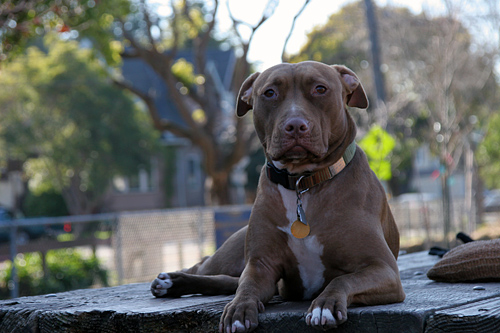A tracking survey performed by researchers from Ohio State University has found that microchips result in a much higher rate of return to guardians/owners.
Fifty three shelters in 23 states agreed to the study which lasted from August 2007 to March of 2008. Guardians were found for 72.9% of the animals, with 73% of owners wanting the animals back (how sad is that, really).
87% of the microchips were found upon initial scan, 10% during a medical evaluation and 2.5% immediately prior to euthanasia.
The rate of return for cats was 20 times higher and 2.5 times higher for dogs. I do not have any data on this, but my guess is most cats are not tagged or collared and free-roaming cats are at a higher risk of being taken to a shelter by neighbors than supervised or indoor cats (as an example, I work for a sanctuary for farmed animals and we get 3-5 calls daily regarding cats who people want to be picked up by the shelter b/c they are soiling their yard, killing the birds, taunting the dogs, injured, malnourished, etc). Location depending, more dogs are probably collared/tagged than cats and, in most regions, it is illegal to allow a dog to run loose. Cat guardians may see microchipping as a safe alternative to a collar and tag which might choke the cat.
Only about 1.8% of companion animals are microchipped. While I understand concerns with long-term effects of inserting a foreign object under an animal's skin, it seems the short term and long-term benefits of microchipping outweigh the currently potential negative long-term consequences. Coupled with licensing and identification tags, microchipping seems like added protection in the hopefully unlikely event your dog or cat gets loose or confiscated by animal control or taken to a vet hospital.
The American Animal Hospital Association recently launched a Pet Microchip Lookup database, which seeks to consolidate microchip identification information.
You can get your companion animals microchipped through your veterinarian or local shelter. I would suggest local shelter and ask about low-cost vaccine/microchip clinics, which are far more cost-effective than what some veterinarians charge.
Most shelters use universal scanners so it should not matter whether you go with Avid or Home Again or any other microchip company. Remember, microchips and id tags are only as good as the information you maintain. If you do not update your information, be it the phone number on the tag or in the microchip company's database, you are setting your animal up for failure.
Mina and Celeste are HomeAgain ladies and I keep all their information updated whenever I move. I have to purchase a new microchip tag for Mina as she somehow managed to lose that and her rabies tag during one of our outdoor adventures.
I hope you will consider microchipping your companion animals, if you haven't already.



1 comment:
Microchip already saved Princess once. Before she was with me, her foster mom adopted her out to someone who she wasn't 100% on, but because she was using the SPCA she kind of had to go with it. But not 6 months after she was first adopted out, Foster mom got a phone call from a vet tech who found Princess on the street. So because her foster mom hadn't updated the chip with the new owner info (gut instinct at first) she got her back and since the adopters never called her about it (probably didn't want her foster mom knowing they lost her) I was able to adopt her finally!! And her foster mom did let me update her chip with my info! ;o)
Post a Comment